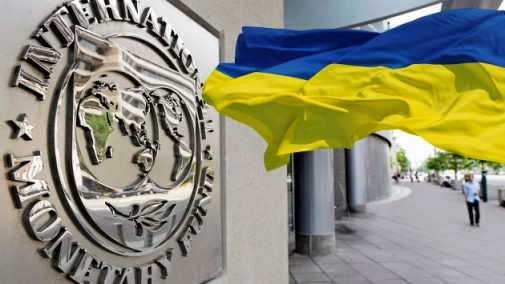♠ Posted by Emmanuel in China
at 1/30/2015 01:30:00 AM
 |
| In a fight between Alibaba and the PRC, I'd bet on the PRC to win. |
Partly it's bad timing as Alibaba has gone into forays like mobile services as China's economy has slowed down:
Alibaba Group Holding Ltd. revenue missed estimates as the e-commerce giant’s push into mobile curbed its advertising sales growth. The shares fell. Revenue was 26.2 billion yuan ($4.2 billion) in the third quarter, compared with the 27.6 billion-yuan average of 25 analyst estimates. Ads on mobile phones generate less money than on desktop computers because of smaller screens, and transactions on the Tmall platform grew at a slower pace, the Hangzhou-based company said Thursday.Even if its most recent results have been well below market expectations, the Chinese government has undoubtedly treated its homegrown technology firms better than foreign ones. The objective, of course, is to encourage the emergence of PRC-based alternatives to the likes of Amazon, e-Bay, Google, etc. However, Alibaba now alleges that heavy-handed tactics government regulators have more frequently used on Western firms are now being applied to it:
Alibaba, which connects consumers and businesses across its platforms, has a “credibility crisis” fueled by its failure to crack down on shady merchants, counterfeit goods, bribery and misleading promotions, the Chinese government said Wednesday. The report by the State Administration for Industry & Commerce [SAIC] accused Alibaba of allowing merchants to operate without required business licenses, to run unauthorized stores that co-opt famous brands and sell fake wine and handbags.Apparently, Alibaba's leadership is not taking SAIC's clampdown in stride, accusing their own government of heavy-handedness:
“The scale of the revelations could leave Alibaba with substantial reputational damage,” said Cyrus Mewawalla, managing director of London-based CM Research. “We still see several risks in this stock that may in the coming months overshadow the earnings growth.”
Vice Chairman Joseph Tsai criticized the findings during Thursday’s earnings conference call and reaffirmed a commitment to ethical business practices. The company decided to file a complaint against the SAIC official who oversaw a meeting with Alibaba representatives in July to discuss the claims.
“We believe the flawed approach taken in the report, and the tactic of releasing a so-called ‘white paper’ specifically targeting us, was so unfair that we felt compelled to take the extraordinary step of preparing a formal complaint to the SAIC,” Tsai said.
Alibaba said in its IPO prospectus there were allegations in the past, and likely would be in the future, that the company’s platforms were selling goods that were counterfeit or infringed on other copyrights including music. The company takes a “very draconian” approach to counterfeits, Tsai said in an interview with Bloomberg Television on Thursday. “There’s nothing more important than the trust consumers have in our platform,” he said.Now this is far more interesting than missed earnings: Alibaba complaining of unfair treatment from its government. My general take is that the Chinese government, which otherwise is a large champion of Alibaba, is wary of its forays into telecoms, financial services and what else have you since over-diversification may be an unwise strategy at a time the Chinese economy is being cooled down. Of course, Chinese government officials also have to consider the interests of other PRC industrialists whose turf Alibaba is muscling into. Hence, the government may be giving a not-so-veiled message that Alibaba should not expand so much so quickly into other industries and areas.
Moreover, since when did the Chinese government care about copyright infringement on a large scale? It's often been treated as nothing more than an American whine. The timing, target and complaint are triply suspect. Unless the Communist Party leadership really wanted to, this would probably not have happened under normal circumstances. Someone really wants get a message across to Alibaba that it has to toe the (Party) line.
Besides, biting the hand that feeds is usually an unwise strategy. PRC leaders may feel they have to knock some sense into Alibaba since they may be holding themselves in too high regard relative to other Chinese businesses and must be knocked down a peg or two. The nail that sticks out gets hammered down: wham-wham-wham!
UPDATE 1: Forbes has more on the story, noting that there have been several high-profile incidents where noveau riche businesspersons have taken on the mighty PRC and lost badly. These appear towards the end of the story; also see this:
By Thursday both sides backed down a little, with the SAIC quietly removing the White Paper [on Alibaba's allegedly lax attitudes towards counterfeit goods] from its website and Alibaba taking down the initial rebuff directed at the director. Yet this gesture doesn’t mean Alibaba is giving in – during the earnings call on Thursday, executive vice chairman Joe Tsai said that the company was preparing to file a formal complaint. Alibaba shares plunged 8.8% in the aftermath due to investors’ concerns over slowed growth, political risks and lack of information transparency.UPDATE 2: Quartz has a translation of the now-famous White Paper which SAIC has since taken down. Here's an excerpt:
As an article reprinted by Xinhua News Agency stated, this incident is “the most heated confrontation between the government and an enterprise in the era of Internet economy” and may prove to “have milestone implications.” Alibaba, with its prominence in China’s internet ecosystem, global status and not the least, politically connected investors, may be uniquely positioned to challenge a state-level government entity.
Poor supervision on products information. On the platform of Taobao Net and Alibaba, products and service information shows there is an invasion of others exclusive rights to use registered trademarks, trade of substandard quality products, and trade of products without lawful import sources, are banned by the state, or are pyramid schemes.UPDATE 3: Alibaba may also be facing heat Stateside over non-disclosure of the PRC's investigation concerning its tolerance of counterfeiting.
















